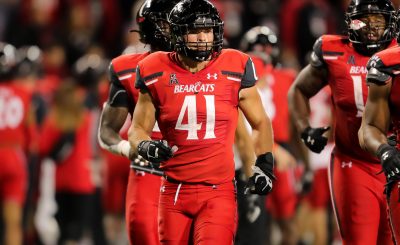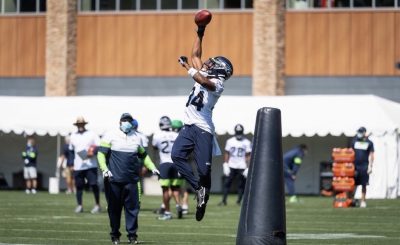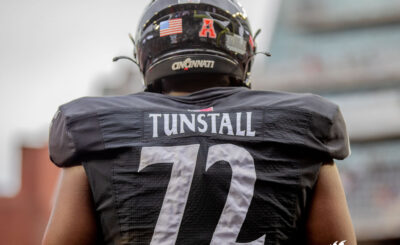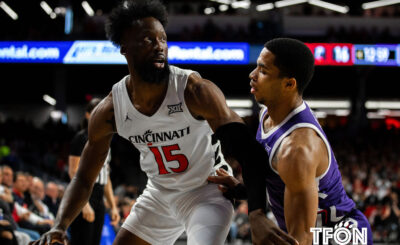Unaccountability
For all the attention surrounding racial incidents during soccer matches, there has largely been no major prolonged repercussions to the teams or leagues whose fans spout discriminatory language to the players. Even if there were such penalties handed down by the game’s administrative leaders, they would essentially be paltry slaps on the wrist as their corresponding suspensions would feature a ban of one to three games, a small monetary fine ranging less than $200, and nothing more.
This kind of consequence transpired in France, where there was an incident in which a black player was assaulted while playing by the hosting team and fans due to his skin color. Kerfalla Sissoko, the victim, plead his case mid-game to the referee over the racist acts, but the latter ignored his grievances. In the end, the punishments laid out from the event contained suspensions to both the aggressors and Sissoko for 10 games each and a fine of $500 to the assaulting party. According to the judges, along with holding the assaulters culpable, the blame had also been pointed to Mr. Sissoko for inciting the fracas although he was the one who received grueling injuries out of event. The result of the case painted a bad picture for the rest of the world as it portrayed both sides being at fault for the confrontation, thereby possibly disregarding any sense of racism that was present at the setting. This is not the only time results like what happened from France played out.
A video from a French Twitter account provides an insight to the extremities the incident was wrought on Sissoko.
"Franchement, je n'ai pas la tête à jouer au foot en ce moment".
Kerfalla Sissoko est l'un des trois footballeurs noirs de l'AS Benfeld à avoir été roués de coups en mai par des joueurs de l'AS Mackenheim, en Alsace. Il a porté plainte pour "agression" et "injures racistes". pic.twitter.com/LMxDuiUNwl— Loopsider (@Loopsidernews) August 13, 2018
In Russia, two of the country’s biggest clubs—Zenit St. Petersburg and Spartak Moscow—were each given a punishment of a $1,600 fine and a league game played behind closed doors after their supporters wrote a manifesto detailing their call for the installation of an all-white and heterosexual team. And again, it was there where Rhian Brewster, a Liverpool FC youth player, was the subject of racist chants as he was called names such as “nigg*r” and a “monkey” during a U.E.F.A. Youth League game between his team and Spartak Moscow.
The incident was reported, but the young man didn’t have any hopes for it going any further than generating attention.
“I don’t think UEFA take this thing seriously,” he said. “They don’t really care. That’s how it feels anyway, like it’s been brushed under the carpet.”
Ultimately, the person accused of the act, Spartak captain Leonid Mironov, saw his charges drop by Union of European Football Associations (UEFA), leaving him unscathed.
It’s a far cry to the kind of legislation FIFA (Fédération Internationale de Football Association) has done recently to provide pushback to the racism. As part of their “Good Practice Guide on Diversity and Anti-Discrimination” from 2017, they instituted a three-step procedure as a way to keep check the expression of racism in games. Each step would increase its scale of punishment– the first violation would signify a stoppage of play; the second a suspension of the match and the players walking to the dressing rooms thereafter; and the third a complete abandonment of said match. The plan made for a valid structure in which any international association could abide by, which is why FIFA left the responsibilities of the execution of the protocol to those federations.
Unfortunately, not much has been done to curtail racism to the point where it’s siphoned away from the stadium, as is the case with Brewster. Even if the players and coaches try to force the issue themselves, like with what happened in Italy where the SSC Napoli delegation threatened to stop playing entirely if they see any more racial insults in their games, there will only be backlash by those who believe this act will destroy the integrity of the game. Either way, the fact that such leniency towards aggressive behavior exists could engender even greater harm to minority players in the future.
This kind of attitude sends a clear message to both sides of racism. For the victims, it means they can’t look forward to help when a new incident comes their way as they know their reports will fall upon deaf ears. For the transgressors, it means they’re virtually allowed to do whatever they want since they know they’ll never get caught by the authorities. But it’s not like all of the aggressive behavior have been completely missed by onlookers.
According to the FARE Network, after analyzing 1,378 matches from 2015 to 2017, they identified 539 incidents of “racist, anti-Semitic, homophobic, nationalist, and Islamophobic nature”. Furthermore, in another report that contained more than 27,000 responses from fans all over the world, this time by an anti-racist group titled “Kick It Out” and Italian live-score app Forza Football, 60% would support point deductions for teams as a result of unchecked racial behavior. Reports are being made and punishments are being examined, so there’s hope for change. However, until proper work is reformed to ensure harsher sanctions against acts of racism, the status-quo of unaccountability will persist.






